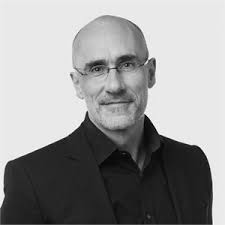Arthur C. Brooks

Arthur C. Brooks is Professor of the Practice of Public Leadership at the Harvard Kennedy School and Arthur C. Patterson Faculty Fellow at the Harvard Business School. Before joining the Harvard faculty in July of 2019, he served for ten years as president of the American Enterprise Institute (AEI), a public policy think tank in Washington, DC.
Brooks is the author of 11 books, including the national bestsellers “Love Your Enemies” (2019), “The Conservative Heart” (2015), and “The Road to Freedom” (2012). He is a columnist for The Atlantic, host of the podcast The Art of Happiness with Arthur Brooks, and subject of the 2019 documentary film “The Pursuit.” He gives more than 100 speeches per year around the U.S., Europe, and Asia, and serves on the board of the Legatum Institute, a think tank in London.
Brooks began his career as a classical French hornist, leaving college at 19, touring and recording with the Annapolis Brass Quintet and later, the City Orchestra of Barcelona. In his late twenties, while still performing, he returned to school, earning a BA through distance learning at Thomas Edison State College, and then an MA in economics from Florida Atlantic University. At 31, he left music and earned an MPhil and PhD in public policy analysis from the Rand Graduate School, during which time he worked as an analyst for the Rand Corporation’s Project Air Force.
Brooks then spent 10 years as a university professor, becoming a full professor at Syracuse University’s Maxwell School of Citizenship and Public Affairs in his seventh year out of graduate school and occupying the Louis A. Bantle Chair in Business and Government. During this decade, Brooks published 60 peer-reviewed articles and several books, including the textbook “Social Entrepreneurship” (2008).
In 2009, Brooks became the 11th president of AEI, as well as holding the Beth and Ravenel Curry Chair in Free Enterprise. Under his leadership, the Institute more than doubled its annual revenues, deepened its outreach to leaders across the ideological spectrum, and expanded its research portfolio to include work on poverty, happiness, and human potential.
